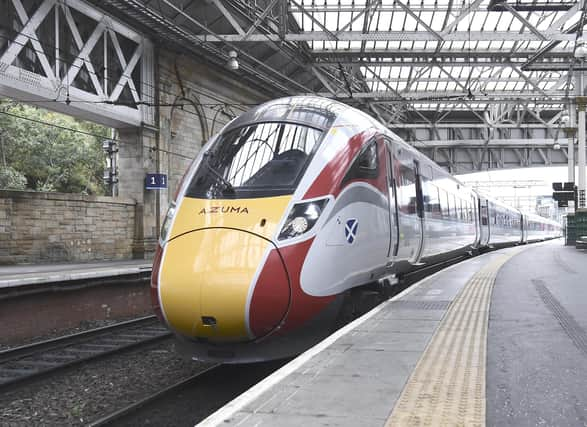Scotland-London rail disruption due to train cracks to last ‘for a number of weeks’


London North Eastern Railway (LNER), one of the affected operators, said the issue is “likely to be going on for a number of weeks”.
The Azuma Hitachi Class 800 trains were withdrawn from service on Saturday for safety checks after cracks were discovered in part of the chassis of several trains.
Advertisement
Hide AdAdvertisement
Hide AdLNER is running a reduced service on the East Coast Main Line, which runs between London King’s Cross and Edinburgh via Peterborough, York and Newcastle.
A spokesman for the operator said: “A temporary, amended timetable will remain in place until Friday 14 May across the LNER route.
"The issue with the Class 800 trains continues to be investigated. Once trains have been checked, they are being reintroduced back into service as soon as possible.
“In addition, LNER is due to introduce an InterCity 225 train back into service tomorrow ahead of the original reintroduction date planned for June.
Advertisement
Hide AdAdvertisement
Hide Ad“Customers are being asked to check before they travel and ensure they have a seat reservation. We apologise for any disruption caused.”
Great Western Railway (GWR) advised passengers with tickets for long-distance journeys on Monday “not to travel” as there was “no service or an extremely limited service” between London Paddington and Bristol Temple Meads, Swansea, Penzance, Hereford and Cheltenham Spa.
The Government called on the rail industry to “urgently set out a comprehensive plan” to resolve the disruption.
Rail minister Chris Heaton-Harris asked Hitachi – which builds and maintains the Class 800 trains – to identify the extent of the cracking and “whether carriages can still run safely” despite the issue, the Department for Transport said.
Advertisement
Hide AdAdvertisement
Hide AdHe also also urged the industry to manage capacity by using “alternative trains” on the affected routes and delivering a “clear rail replacement schedule” using buses and coaches.
A spokesman for Hitachi said the cracks are on lifting points under train carriages, which are used during maintenance.
He continued: “Safety is our number one priority and as a precaution this continues to impact the number of trains that can run in service.
“We acknowledge the Government’s clear direction regarding the forward repair plan and our teams continue to work day and night with the ORR, operators and independent experts. We thank passengers for their ongoing patience.”
Advertisement
Hide AdAdvertisement
Hide AdRobert Nisbet, director of nations and regions at industry body the Rail Delivery Group, said if inspected trains are found to have “tiny cracks” then replacement trains may be deployed while repairs are carried out.
Mr Nisbet described the cancellations as “disappointing” because more passengers are returning to using the train network following the easing of coronavirus restrictions.
In response to a question on how long trains have been running with cracks, he said: “These trains are relatively new in service, so this is something that the Hitachi engineers will be looking at and reporting back to the train operating companies.”
On Sunday he said that the cracks “didn’t pose any particular danger to passengers” but they “have the potential to develop” if left untreated.
